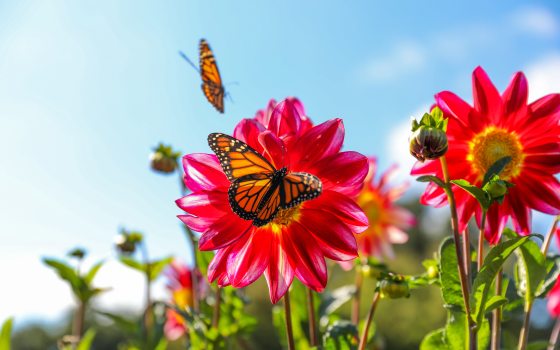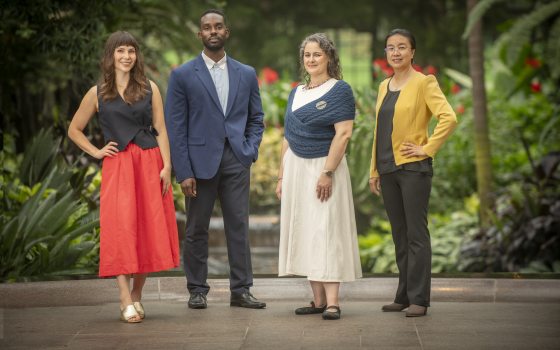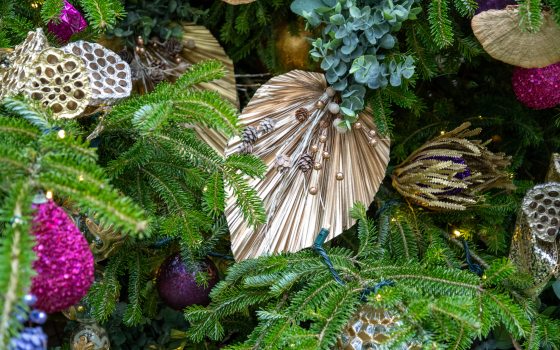Each year, horticulture professionals from around the globe apply for the Longwood Fellows Program, a unique leader-development program that focuses on preparing high-potential professionals for high-impact roles in public horticulture. While a few applicants are selected each year for the program—and thereby find themselves embarking upon an immersive learning experience at Longwood along with their respective cohort—the challenges, connections, and opportunities of the program have far-reaching impacts, both on the Fellows themselves and on the health and longevity of the field of public horticulture as a whole.
As advocates for green spaces with the ability to inspire an appreciation for nature in others, alumni of the Longwood Fellows Program (previously called the Longwood Graduate Program) often go on to lead nonprofit institutions with meaningful missions rooted in plants, conservation, research, and education. They’re strategic planners, cross-departmental collaborators, capital project managers, development officers, educators, curators, and so much more.
In 1967, Longwood partnered with the University of Delaware to create the Longwood Graduate Program, awarding graduates a Master of Science in ornamental horticulture. This program evolved twice in its history—in 1988, the degree changed to a Master of Science in Public Horticulture Administration and in 1998 to a Master of Science in Public Horticulture. In 2017, the program underwent a complete transformation, altering its focus to building leadership capacity in public horticulture, replacing the graduate program with the current Fellows Program. Those who completed the Longwood Graduate Program and the Longwood Fellows Program, however, share many common experiences and have many fond memories—and success stories—to share. All Fellows have the opportunity to engage in project-based learning, expand their professional networks by traveling to other gardens, and learn from Longwood’s strategy and operations.
For Kunso Kim, a 1992 graduate, his passion for horticulture began while working at Chollipo Arboretum in Korea. Though his work there focused on hands-on horticulture, he was captivated by the incredible diversity of species and cultivars of trees—and he decided to pursue that passion via the Longwood Graduate Program. This marked his second journey to Longwood as he had first participated in our International Internship & Training Program from 1982-1983. During that time, he gained practical experience rotating through various departments including greenhouse collections, production, display, and arboriculture.
Stepping into Longwood Gardens was like stepping into a whole new world - a magical world where every plant and every horticultural display was a new discovery waiting to be made. He was determined to make the most of his time there, soaking up every bit of knowledge and experience that he could.
“At the time, I faced a difficult decision—to leave my young family behind and pursue my passion for horticulture, or let the opportunity pass me by,” shares Kim, as he reminisces about his decision to apply for the Longwood internship program. “But my love for the field and my determination to grow drove me forward, and I knew I couldn't let this opportunity slip away.”
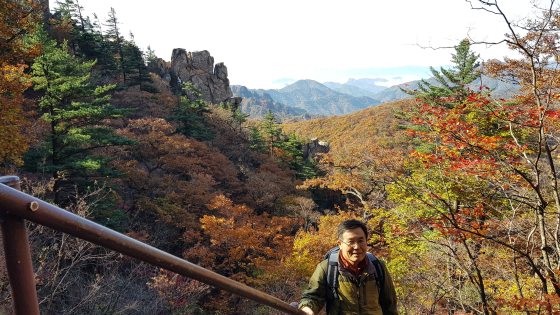
In 2017, Kunso Kim travelled to Mt. Sorak-san, Korea for a collections trip. Photo courtesy of Kunso Kim.
His time as a Longwood intern and trainee was only the beginning, however, as he would next go to England to further develop his skills at Saville Garden in Crown Estate Windsor before returning to Korea. He was hooked, though: with dreams of applying what he’d learned on a global scale, he applied to the Longwood Graduate Program.
“My heart remained with Longwood, and I knew I needed to return,” he shares. “So, I made the decision to come to the US, together with my family, to pursue my dreams of studying at the Longwood Graduate Program. And as the first student from Korea, I was thrilled to be accepted, to continue building upon the valuable experiences and knowledge I had gained during my time as a trainee.”
In addition to balancing the responsibilities that come with moving a family overseas, Kim continued learning with additional courses in chemistry, biology, ecology, and systematics at other organizations.
“Overall, the challenges I faced during my time at Longwood helped me to develop a mindset of continuous growth and improvement, which has been invaluable in my career,” says Kim. “And I would encourage anyone who is passionate about horticulture or any other field to always be open to challenges and to embrace every opportunity for growth and learning.”
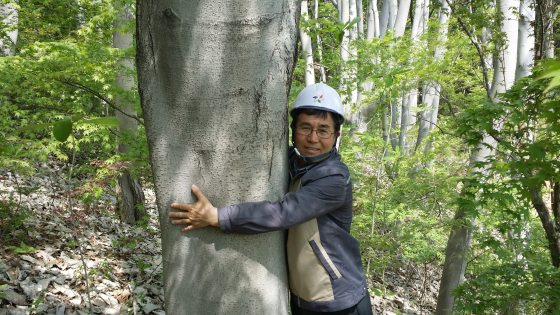
Kunso Kim hugs a Magnolia obovata at Everland, Young In, Korea in 2015. Photo courtesy of Kunso Kim.
Since completing the Longwood Graduate Program, Kim has continued his endeavors to work in the fields of public horticulture with particular interest in biodiversity, conservation, and sustainability, enjoying opportunities to participate in global plant exploration to collect priority plant species and observe the floristic similarities and species disjunction between east Asia and the eastern US. That drive to experience horticulture globally has presented him with opportunities at several internationally known institutions. Since 2018, Kim has served as the Associate Director of Marsh Botanical Garden at Yale University.
Like Kim, many Fellows are motivated to become leaders in the global plant community. A passion for international plant exploration and collaboration is a common thread for many Fellows, including for Claire Sawyers, a 1984 graduate of the Longwood Graduate Program.
Sawyers spent her youth between a dairy farm in northwest Missouri and Japan. While attending Purdue University as an undergrad in ornamental horticulture, she returned to Japan where she challenged herself to understand the combination of beauty and function the Japanese had mastered in their gardens. She began lecturing on how to combine beauty and function to make gardens true to a specific time, place, and culture. She’d eventually build on those lectures to publish a book, The Authentic Garden: Five Principles for Cultivating Place.
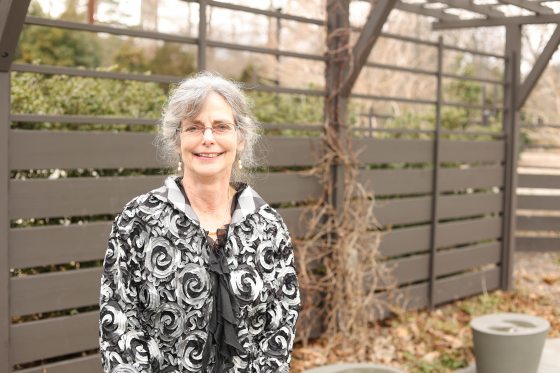
Longwood Graduate Program alumna Claire Sawyers. Photo courtesy of Scott Arboretum.
After graduating with her bachelor’s degree, she worked in gardens in Belgium (Kalmthout Arboretum) and France (private gardens in Brittany and Normandy), before returning to Purdue to earn a master's degree in horticulture. Then, she entered the Longwood Graduate Program.
For Sawyers, one of the most memorable parts was making connections with others in the program. Those connections have persisted throughout her career—translating into professional relationships, friendships, and even a job at Mt. Cuba Center with her former advisor.
“It’s a good, valuable, and fun network of alumni,” Sawyers shares. “I’ve reached out to former classmates for committees and other work. Though the initial connection was made through the program, there’s continued to be professional support and friendship that’s endured throughout the years.”
Since 1990, Sawyers has served as the director of the Scott Arboretum of Swarthmore College. She’s secured notable endowments and spearheaded the creation of the Wister Education Center and Greenhouse. She’s overseen the expansion of facilities and capital, creation of new positions, and still finds time to plan international trips. Her work in the field of public horticulture was recently recognized with the American Horticultural Society’s highest award, the Liberty Hyde Bailey Award.
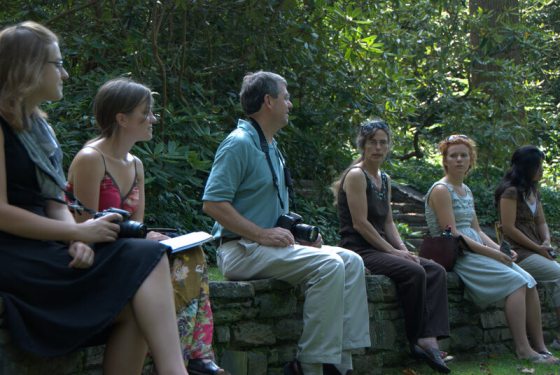
Sawyers (third from right) has continued to be an active member of the Fellows alumni network. For example, in July 2010, she hosted the Longwood Graduate Program’s class of 2012 at the Scott Arboretum of Swarthmore College, where they were introduced to green building and landscaping technologies. Photo by James Hearsum.
Additionally, she never loses sight of connecting new generations with horticulture. “What I’m enjoying most is that we’re changing people’s lives at Scott Arboretum,” she shares. “The most gratifying moments are the ones we can look at to see what we’ve done to impact lives through experiences in nature, both in our garden and internationally. We set out to teach horticulture, but an outgrowth of that is that we’re shaping lives for the better.”
From creating experiences at the nexus of plants and people to conducting research on endangered flora, public gardens play a critical role in confronting the challenges of tomorrow. Fellows are equipped with the knowledge and executive skills to lead organizations into the future of horticulture. Green thumbs and ideas are nurtured across lifetimes, and a Longwood Fellowship is just one branch of a great tree.
“I’ve been humbled by trees my entire life,” says Matt Stephens, a 2006 graduate of the Longwood Graduate Program. “One of my earliest memories is of the silver maple tree in my backyard. What I remember is as a young boy of four is a branch falling off, and I stuck it in the soil thinking it would grow. Of course, it failed.”
Growing up in Illinois, Stephens imagined working for a large landscape company or nursery. While studying at Illinois State University, he was introduced to the idea of having a career in public gardens and learned of the graduate program at Longwood. “I love the place I grew up, but Longwood enabled me to open my eyes to see what else was out there,” Stephens says. “The course of my life and career changed after Longwood.”
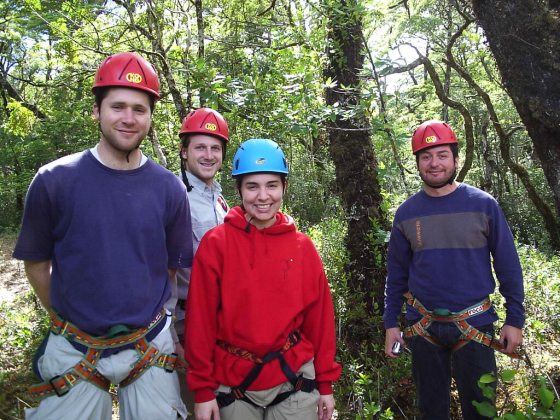
Matt Stephens (far left) traveled to Chile and Easter Island in 2005 as part of his Longwood Graduate Program experience. During their time there, Fellows explored diverse ecosystems and immersed themselves in the culture.
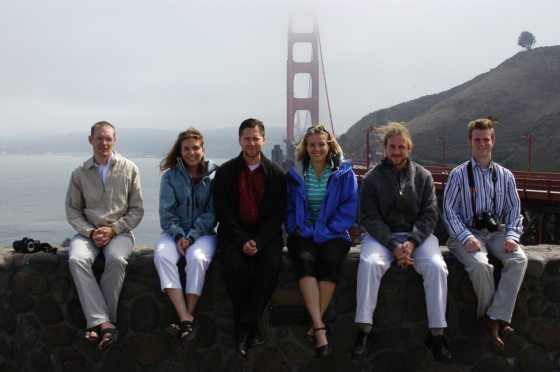
Matt Stephens (third from left) visits San Francisco with other Fellows during his time in the Longwood Graduate Program. Photo courtesy of Matt Stephens.
Stephens completed the Longwood Graduate program in 2006 and went onto lead MillionTreesNYC, an ambitious urban greening project in which one million trees were planted throughout New York City. From there, he served as the director of the San Francisco Conservatory of Flowers, Japanese Tea Garden, and Botanical Garden. He has since returned to the East Coast, and is currently serving as the President & CEO of Mount Auburn Cemetery in Boston.
Throughout his career— whether in New York, Boston, or San Francisco—Stephens has often been reminded that resources matter. Drawing upon what he learned at Longwood about planning and strategy, Stephens emphasizes a planning-centric culture to maximize resources for excellent delivery.
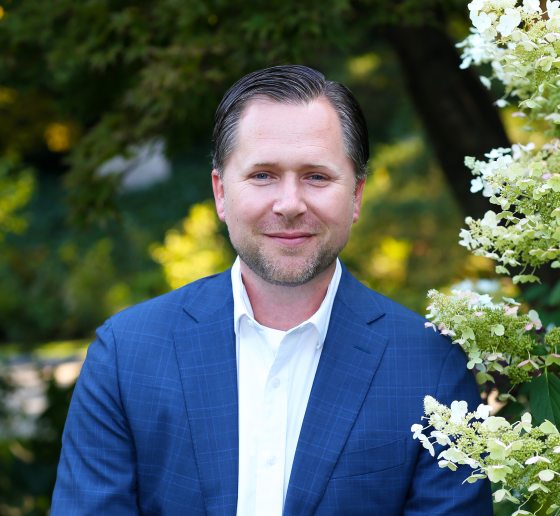
Longwood Graduate Program alumnus Matt Stephens. Photo courtesy of Matt Stephens.
“My time at Longwood was incredible,” Stephens shares. “For two years, you have every resource you can imagine at your fingertips—time was the most limiting factor. It was incredible to be immersed in the most exceptional public garden in the country.”
We are currently accepting applications for the 2024–2025 Fellows Program cohort, and—like Kim, Sawyers, and Stephens, among the hundreds of Longwood Graduate Program and Longwood Fellows Program alumni—we can’t wait to see what this next group of Fellows achieves.
Editor’s note: Applications for the 2024–2025 Fellows Program are open through July 31, 2023. Learn more about the program and apply today
